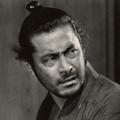Robin Marx reviewed The White Darkness by David Grann
Review of 'The White Darkness' on 'Goodreads'
3 stars
A brief but exciting read about a modern adventurer walking in the footsteps of his hero, Antarctic explorer Ernest Shackleton. In addition to a quick overview of the earliest polar expeditions, this book covers Henry Worsley's successful journey as well as the disastrous solo attempt that followed years later. The story touches on hero worship and the limits of human endurance as well as reminding the reader just how much untouched and inhospitable terrain remains on our planet.
As a two-part New Yorker essay, this was perfectly sized. However, had I paid for the published book edition (currently $12 on Amazon) I likely would have felt ripped-off. This book is more of a breezy sketch than an in-depth day-by-day portrayal.
A brief but exciting read about a modern adventurer walking in the footsteps of his hero, Antarctic explorer Ernest Shackleton. In addition to a quick overview of the earliest polar expeditions, this book covers Henry Worsley's successful journey as well as the disastrous solo attempt that followed years later. The story touches on hero worship and the limits of human endurance as well as reminding the reader just how much untouched and inhospitable terrain remains on our planet.
As a two-part New Yorker essay, this was perfectly sized. However, had I paid for the published book edition (currently $12 on Amazon) I likely would have felt ripped-off. This book is more of a breezy sketch than an in-depth day-by-day portrayal.


